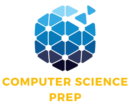Looking for programs in a specific city? Check out our lists of Computer Science in Phoenix, Tucson, Mesa, Chandler, Gilbert, Glendale, Scottsdale, Peoria, Tempe, and Surprise.
Starting your journey in the tech field? Here’s how to become a computer scientist in Arizona.
- High-quality education: Learn about essential courses and degrees from top Arizona universities.
- Certifications and experience: Discover practical ways to gain real-world experience and earn relevant certifications.
- Arizona’s thriving job market: Explore job opportunities at major tech companies and emerging startups.
How to become a computer scientist in Arizona? Let’s get started!
- Understanding the Role of a Computer Scientist
- Educational Pathways to Becoming a Computer Scientist
- Top Arizona Universities for Computer Science
- Certifications and Online Courses
- Gaining Practical Experience
- Arizona’s Tech Job Market
- Specializations within Computer Science
- Soft Skills and Professional Development
- Navigating the Job Application Process
- Looking for Computer Scientist Information On States Bordering Arizona?
- Conclusion
Understanding the Role of a Computer Scientist
Core Responsibilities of a Computer Scientist
Computer scientists are at the forefront of innovation, pushing the boundaries of technology. They create algorithms, design complex software systems, and solve intricate computational problems. Your responsibilities often include:
- Algorithm Development: Designing efficient algorithms to solve specific problems.
- Software Engineering: Writing, testing, and maintaining software applications.
- Data Analysis: Analyzing large datasets to extract meaningful insights.
- Research: Conducting research to advance knowledge in fields such as artificial intelligence and machine learning.
Areas of Specialization
Computer scientists work across various specializations. Some popular fields include:
- Artificial Intelligence (AI): Developing intelligent systems capable of performing tasks that typically require human intelligence.
- Cybersecurity: Protecting systems and networks from digital attacks.
- Software Development: Creating applications and systems software.
- Data Science: Utilizing statistical techniques to analyze and interpret complex data.
Skills Required
To excel as a computer scientist, you need both technical and soft skills. Essential technical skills include programming languages (such as Python, Java, and C++), understanding of algorithms, and proficiency in data structures. Equally important are soft skills:
- Problem-Solving: Tackling complex issues with logical approaches.
- Communication: Clearly explaining technical concepts to non-technical stakeholders.
- Collaboration: Working effectively within a team to achieve common goals.
Educational Pathways to Becoming a Computer Scientist
High School Preparation
Preparing early in high school can set a strong foundation for your career:
- Mathematics and Physics: These subjects enhance your logical thinking and problem-solving abilities.
- Computer Science Courses: Engage in introductory courses in programming and computer science.
- Coding Clubs: Participate in coding clubs to gain practical experience.
Bachelor’s Degree
A Bachelor’s degree in Computer Science is crucial to becoming a computer scientist. Arizona offers excellent programs:
- Core Subjects: You’ll study algorithms, data structures, and programming languages.
- Electives: Consider electives in AI, machine learning, and cybersecurity to diversify your skills.
Advanced Degrees
Pursuing an advanced degree like a Master’s or Ph.D. allows for specialization and deep research opportunities. These degrees can significantly boost your career:
- Master’s Programs: Offer advanced coursework and specialized knowledge.
- Ph.D. Programs: Focus on research, leading to academic and high-level industry roles.
Online and Community College Programs
If a four-year university isn’t feasible, consider alternative educational paths:
- Online Courses: Platforms like Coursera and edX offer flexible learning options.
- Community Colleges: These provide affordable, quality education and can be a stepping stone to a university program.
Top Arizona Universities for Computer Science
Arizona State University (ASU)
ASU is renowned for its cutting-edge research facilities and focus on innovation:
- Research Opportunities: Engage in groundbreaking projects in AI and cybersecurity.
- Collaborative Environment: Network with peers and professors to expand your knowledge.
University of Arizona (UofA)
UofA offers extensive research programs and partnerships with industry leaders:
- Industry Connections: Access internships and job opportunities through partnerships.
- Comprehensive Curriculum: Gain a broad understanding of computer science principles.
Northern Arizona University (NAU)
NAU focuses on practical skills and personalized learning experiences:
- Smaller Class Sizes: Benefit from one-on-one interactions with faculty.
- Hands-On Learning: Participate in lab work and real-world projects.
Accreditation and Faculty Expertise
Ensuring the program is accredited guarantees a high-quality education. Look for faculty with industry and research experience to provide insights into current trends and technologies.
Certifications and Online Courses
Relevant Certification Programs
Certifications validate your skills and make you more attractive to employers:
- CompTIA Security+: Focuses on foundational cybersecurity skills.
- AWS Certified Solutions Architect: Demonstrates your expertise in cloud computing.
- Cisco’s CCNA: Covers networking fundamentals and advanced concepts.
The Importance of Certifications
Certifications can give you a competitive edge in the job market. They showcase your commitment to professional development and enhance your resume.
Online Courses and Bootcamps
Boost your knowledge with online courses and bootcamps:
- Coursera and Udemy: Offer a variety of courses in programming, data science, and AI.
- General Assembly: Provides immersive bootcamps in software engineering and data science.
Gaining Practical Experience
Internships
Internships provide invaluable hands-on experience and networking opportunities:
- University Resources: Use your university’s career services to find internships.
- Job Portals: Websites like Indeed and Glassdoor list numerous internship opportunities.
Research Opportunities
Participate in university research projects to gain deep knowledge in specific areas:
- Faculty Projects: Collaborate with professors on cutting-edge research.
- Independent Research: Pursue your interests and contribute to academic journals.
Personal Projects and GitHub
Showcasing personal projects demonstrates your skills and initiative:
- Create a Portfolio: Develop projects that solve real-world problems.
- GitHub Repositories: Share your code and collaborate with others to build your portfolio.
Networking Tips
Building a professional network is crucial for career advancement:
- Local Tech Meetups: Attend events to meet industry professionals.
- Online Communities: Join forums and groups to stay updated and connected.
- Professional Organizations: Become a member of organizations such as ACM or IEEE.
Remember, each experience you gain will bolster your resume and prepare you for a successful career as a computer scientist in Arizona.
Arizona’s Tech Job Market
Overview of Arizona’s Tech Industry
Arizona’s tech industry is booming with the evolution of numerous technology hubs. The state has attracted significant investments in technology infrastructure and innovation. This rapid expansion brings you remarkable opportunities to start and grow your career as a computer scientist.
Major Companies in Arizona’s Tech Ecosystem
By working in Arizona, you have a chance to collaborate with some influential technology companies. Notable employers include:
- Intel: Known for its extensive research and development initiatives.
- Microchip Technology: Specializes in semiconductor products and has a robust presence in Arizona.
- GoDaddy: A prominent web hosting and domain registration company headquartered in the state.
- ON Semiconductor: A leading supplier of semiconductor-based solutions.
These companies often seek skilled computer scientists for various roles, such as software development, data analysis, and cybersecurity.
Demand and Trends in the Job Market
Recent trends show a growing demand for computer scientists in Arizona. Specifically, there is an increased need for expertise in:
- Cybersecurity: With the rise in digital threats, companies are investing heavily in protecting their data.
- Data Science: Businesses are leveraging big data to drive strategic decisions, creating numerous roles for data scientists.
- Artificial Intelligence and Machine Learning: Innovation in AI is a priority for many companies, requiring skilled professionals to develop and implement intelligent systems.
Salary Expectations for Computer Scientists in Arizona
As a computer scientist in Arizona, you can expect competitive salaries. Entry-level positions typically start around $70,000 annually. With experience, your salary can exceed $120,000, reflecting the robust career growth opportunities available. Specializations like cybersecurity and AI tend to offer higher salaries due to their critical importance and demand.
Specializations within Computer Science
Common Specializations
Choosing a specialization can enhance your career prospects. Some popular specializations include:
- Artificial Intelligence (AI): Develop systems that simulate human intelligence, engaging in tasks such as natural language processing and robotics.
- Cybersecurity: Protect computer systems and networks from digital attacks, ensuring the integrity and confidentiality of data.
- Data Science: Utilize statistical methods to analyze and interpret complex data, supporting informed business decisions.
- Software Development: Focus on designing, coding, testing, and maintaining software applications.
Benefits of Specializing
Specialization offers key advantages:
- Higher Salaries: Specialists often earn more due to their niche expertise.
- Enhanced Job Opportunities: Companies actively seek specialists to lead specific projects or develop advanced technologies.
- Cutting-edge Technology Involvement: Specializing allows you to work on the forefront of technological innovation.
Choosing a Specialization
When selecting a specialization, consider:
- Your Interests: Reflect on areas that fascinate you and align with your career goals.
- Market Demand: Research industry trends to identify high-demand specializations.
- Academic and Professional Advice: Seek guidance from mentors, professors, or industry professionals to make informed decisions.
Soft Skills and Professional Development
Essential Soft Skills
As a computer scientist, possessing strong soft skills is crucial:
- Communication: Clearly explain technical concepts and collaborate effectively with colleagues and stakeholders.
- Teamwork: Work harmoniously within diverse teams to solve complex problems.
- Problem-Solving: Develop innovative solutions for challenging computational issues.
Leadership and Management
Advanced career opportunities often involve managerial roles. Developing leadership skills can position you for roles such as project manager or team lead. Key aspects of leadership in tech include:
- Strategic Planning: Oversee project development from concept to deployment.
- Resource Management: Allocate resources efficiently to meet project goals.
- Team Motivation: Inspire and lead your team to achieve high performance.
Continuous Learning
The tech industry evolves rapidly, making continuous learning vital:
- Online Courses: Platforms like Coursera and edX offer courses on new technologies and emerging trends.
- Workshops and Conferences: Attend industry events to stay updated and network with professionals.
- Professional Memberships: Join organizations such as ACM or IEEE for resources and community support.
Navigating the Job Application Process
Crafting an Effective Resume and Cover Letter
Your resume and cover letter play a pivotal role in the job application process:
- Highlight Relevant Experiences: Include educational qualifications, internships, and projects that demonstrate your skills.
- Showcase Skills and Achievements: Use bullet points to make your resume easy to read and emphasize key accomplishments.
- Tailor Your Cover Letter: Customize it for each job application, explaining why you are a perfect fit for the role.
Preparing for Technical Interviews
Prepare thoroughly for technical interviews by:
- Practicing Coding Problems: Utilize platforms like LeetCode and HackerRank to hone your coding skills.
- Studying Field-Specific Questions: Familiarize yourself with common interview questions related to your specialization.
- Mock Interviews: Conduct mock interviews with peers or mentors to gain confidence and receive constructive feedback.
Leveraging LinkedIn and Job Portals
LinkedIn and job portals are valuable resources for job hunting:
- Networking: Connect with professionals in your field to stay informed about job openings.
- Job Alerts: Set up alerts on job portals like Indeed and Glassdoor to receive notifications for relevant positions.
- Professional Profiles: Keep your LinkedIn profile updated to attract potential employers and recruiters.
Negotiating Job Offers
After receiving a job offer, negotiate effectively:
- Understand Your Market Value: Research salary ranges for your role and experience level.
- Evaluate the Offer: Consider factors like benefits, work-life balance, and growth opportunities.
- Communicate Clearly: Express your expectations respectfully and provide rationale for your requests.
Looking for Computer Scientist Information On States Bordering Arizona?
In addition to Arizona, we suggest looking for schools in nearby states.
- How to Become A Computer Scientist in California
- How to Become A Computer Scientist in Nevada
- How to Become A Computer Scientist in Utah
- How to Become A Computer Scientist in New Mexico
- How to Become A Computer Scientist in Colorado
Conclusion
Becoming a computer scientist in Arizona involves a strategic blend of education, practical experience, and continuous learning. Arizona’s thriving tech ecosystem offers ample opportunities for career growth and specialization. By following these guidelines and leveraging available resources, you can successfully navigate your path to becoming a computer scientist in Arizona.

